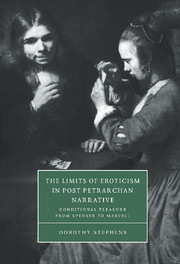5 - “Who can those vast imaginations feed?” The Concealed Fancies and the price of hunger
Published online by Cambridge University Press: 22 September 2009
Summary
In about 1645 or 1646, Ladies Jane Cavendish and Elizabeth Cavendish Brackley, sisters in their twenties, wrote a comedy titled The Concealed Fancies with perhaps some help from their younger sister, Frances. The play has never received much attention, and until 1996 it was available outside the Bodleian only in the form of an unglossed diplomatic transcript published by Nathan Comfort Starr in 1931 as a journal article, with a brief introduction and afterword that consist mostly of biographical information about the authors. Starr's comments about the play itself are few but memorable:
As a literary production, The Concealed Fansyes is practically without value. Its conformity to the Jonsonian comedy of humors, and its specific indebtedness to Jonson are sufficiently obvious without detailed comment, nor is it necessary to dwell upon the resemblance between the brothers in the play and those of Comus [fn. omitted]. The chief interest of the work lies in the artless revelation of the activities of seventeenth century ladies of fashion, living in the country. As might be expected, the authors did not hesitate to use material based on the circumstances of theirown family.
(“The Concealed Fansyes,” 836)Admittedly I am taking a cheap shot, given that gender studies were not part of the curriculum in 1931. One could hardly imagine any late twentieth-century literary scholar trivializing Cavendish and Brackley as Starr does, and the play's recent editors, S. P. Cerasano and Marion Wynne-Davies, have a great deal of respect for the work.
- Type
- Chapter
- Information
- The Limits of Eroticism in Post-Petrarchan NarrativeConditional Pleasure from Spenser to Marvell, pp. 143 - 177Publisher: Cambridge University PressPrint publication year: 1998



